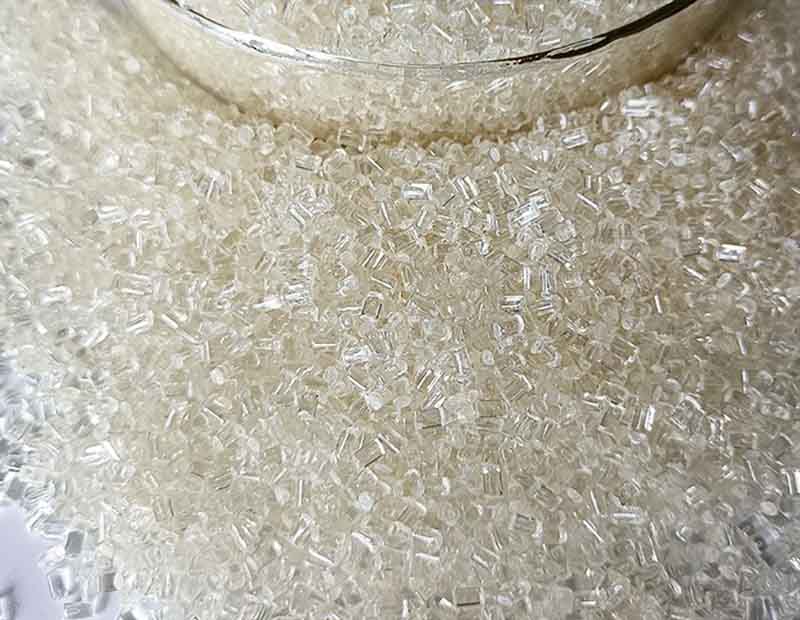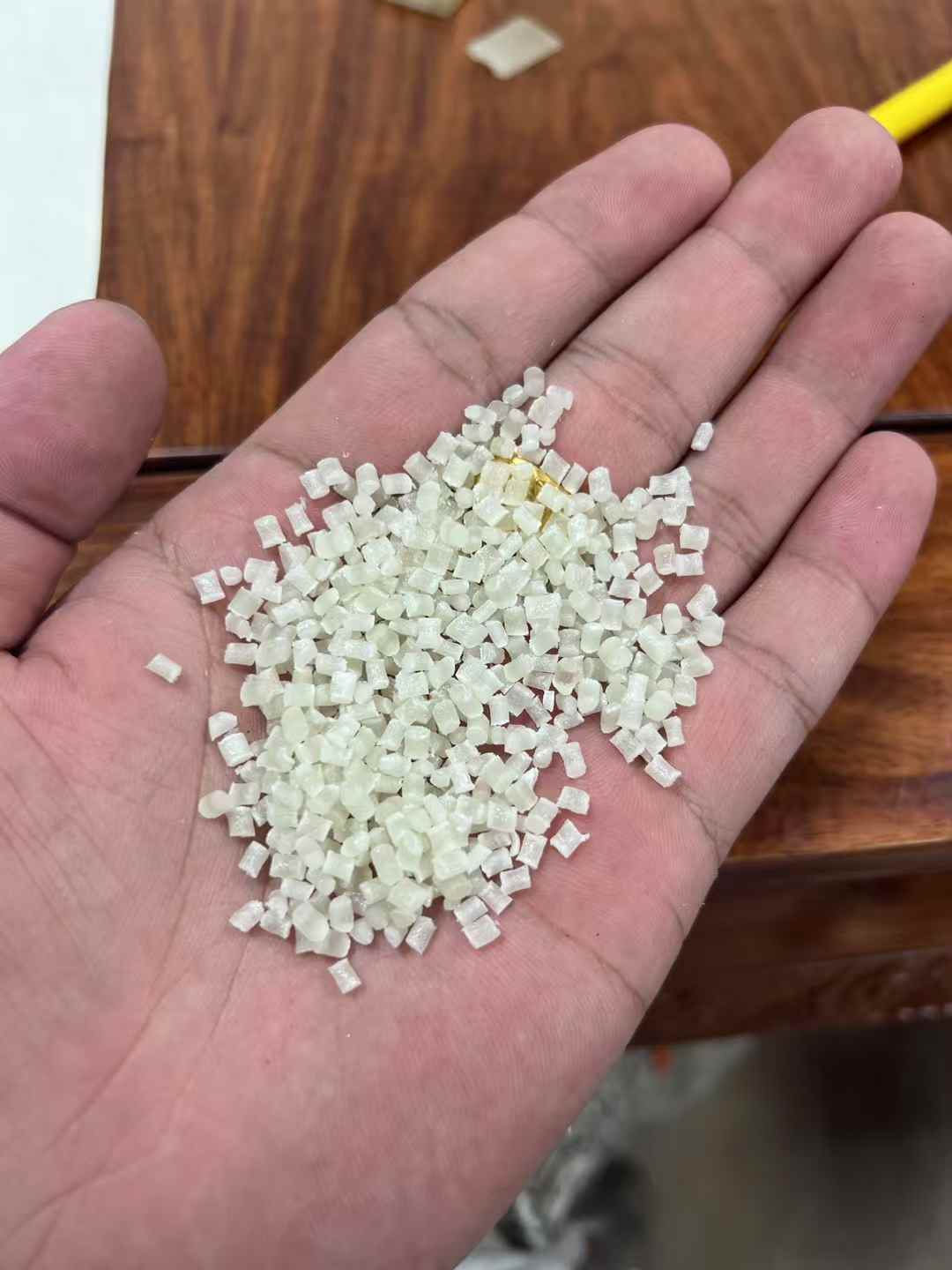Polysulfone resin is an engineering-grade thermoplastic that belongs to the class of sulfone polymers. It is renowned for its ability to withstand high temperatures and harsh chemical environments while maintaining its mechanical properties. PSU resin is typically transparent, has excellent impact resistance, and can be used in both rigid and flexible forms. It is also highly resistant to hydrolysis, making it suitable for applications where exposure to moisture is frequent.
Made from a combination of aromatic sulfones and other chemical additives, Polysulfone resin has superior resistance to heat, making it ideal for high-temperature applications. It is frequently used in the medical, filtration, and plumbing industries due to its excellent stability and performance under extreme conditions.

High Temperature Resistance
Polysulfone Resin Material can withstand high operating temperatures without losing its mechanical properties. It retains its strength and dimensional stability even at temperatures exceeding 180°C, making it ideal for applications that require heat resistance, such as industrial machinery parts and medical devices.
Chemical and Hydrolysis Resistance
PSU resin excels in environments exposed to chemicals and moisture. It is highly resistant to a wide range of solvents, acids, and bases, ensuring long-lasting performance even in corrosive environments. Additionally, it can maintain its integrity when exposed to water or steam, making it ideal for applications like water filtration membranes and plumbing systems.
Impact Resistance and Durability
Polysulfone offers excellent impact resistance, making it a durable choice for industrial applications where parts may be subject to mechanical stress. The material’s high strength-to-weight ratio ensures that it is both tough and lightweight.
Transparency and Aesthetics
With its natural transparent appearance, Polysulfone resin is widely used in medical devices and consumer goods where visual clarity is required. This transparency allows for better visibility of internal components and makes it easier to monitor fluid flow, filtration processes, or other processes where clarity is essential.
Environmental Sustainability
Polysulfone resin is an eco-friendly option due to its long-lasting durability and resistance to degradation. It also supports recycling efforts in various industries, helping reduce the environmental impact of products made from Polysulfone.

Polysulfone resin is a versatile material with a wide range of applications across multiple industries. Below are some of the key sectors where Polysulfone is commonly used:
Medical Devices and Equipment
Polysulfone is widely used in medical applications such as tubing, connectors, sterilizable instruments, and dialysis filters. Its excellent chemical and heat resistance properties make it suitable for medical environments where sterilization and exposure to chemicals are common.
Water Filtration Systems
Due to its resistance to hydrolysis, Polysulfone is an ideal material for water filtration membranes and components. It is used in both reverse osmosis and ultrafiltration systems to remove contaminants from water while maintaining structural integrity.
Plumbing and Water Treatment
Polysulfone is used in plumbing systems, valves, and fittings because of its high resistance to heat and chemicals. The material can endure high water temperatures and is resistant to chemicals commonly found in water treatment processes.
Consumer Goods and Electrical Components
Polysulfone is often used in consumer goods such as kitchenware and electrical components, where durability and heat resistance are critical. It is also used in components such as electrical connectors and circuit breakers, where its insulating properties are essential.
Automotive and Aerospace
Polysulfone resin is gaining popularity in automotive and aerospace industries, particularly for components requiring high strength and resistance to heat. Its use in high-performance parts ensures longevity and reliability, even under extreme temperatures and pressures.
While Polysulfone resin offers many benefits, it is important to consider a few factors before choosing it for your specific application:
Cost
Polysulfone resin is often more expensive than other thermoplastics due to its high performance and specialized properties. However, its longevity and resistance to wear and tear make it a cost-effective choice in the long run.
Processing
Polysulfone resin may require specialized equipment for molding and extrusion, making processing more complex compared to some other plastics. It is essential to work with a manufacturer who has the expertise to process Polysulfone efficiently.
UV Resistance
Polysulfone resin is not naturally resistant to UV light. Therefore, if the application involves exposure to sunlight, additional coatings or treatments may be necessary to enhance its UV resistance.
Polysulfone resin is relatively low-maintenance and easy to clean. However, to ensure optimal performance and longevity, the following tips are recommended:
Cleaning: Regular cleaning with a mild detergent and water is sufficient to maintain the appearance of Polysulfone components. Avoid using abrasive cleaning agents, as these could scratch the surface.
Avoid Direct Sunlight: For applications that are exposed to sunlight, it is recommended to use UV stabilizers to protect the material from degradation.
Storage: Store Polysulfone resin in a dry, cool environment to prevent exposure to excessive moisture or heat, which could affect its mechanical properties.
What is Polysulfone Resin?
Polysulfone resin is an engineering-grade thermoplastic that is known for its heat resistance, chemical stability, and durability. It is commonly used in medical, filtration, and industrial applications.
What are the key benefits of Polysulfone Resin?
The key benefits include high-temperature resistance, chemical and hydrolysis resistance, excellent impact resistance, transparency, and environmental sustainability.
What industries use Polysulfone Resin?
Polysulfone is widely used in the medical, water filtration, plumbing, automotive, aerospace, and consumer goods industries.
Is Polysulfone Resin UV resistant?
Polysulfone resin is not naturally resistant to UV light. For applications exposed to sunlight, additional UV stabilizers may be needed.
How do I maintain Polysulfone Resin products?
Polysulfone resin products can be cleaned with mild detergent and water. It is also advisable to avoid direct sunlight exposure for prolonged periods.
What is the processing requirement for Polysulfone Resin?
Polysulfone resin requires specialized processing equipment for molding and extrusion. It is important to work with an experienced manufacturer for efficient processing.